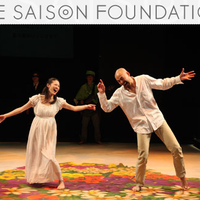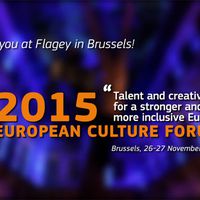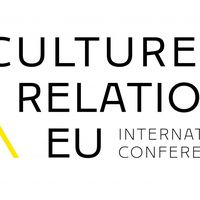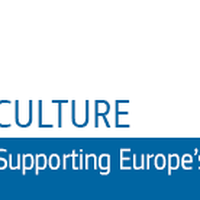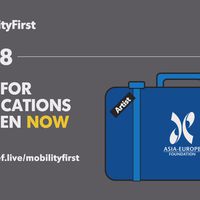EU: performing arts cultural policy and funding
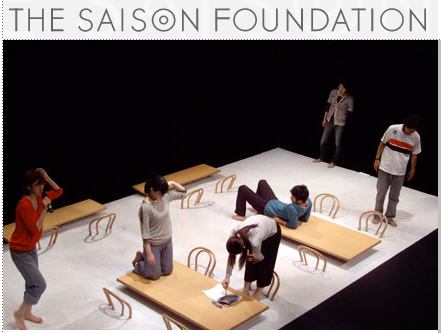
[caption id="attachment_2773" align="alignright" width="270" caption="www.saison.or.jp"]
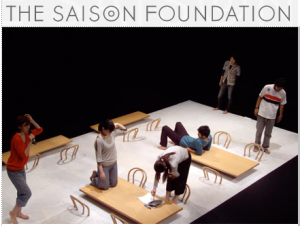 [/caption]
[/caption]This article was commissioned by the Saison Foundation in Japan for publication in its Viewpoints newsletter 47.
The cultural policy which guides financial support for performing arts at the level of the European Union (EU) has evolved over many years. It is carried out through a series of programmes which aim to support cultural cooperation between the Member States. The legal basis for such actions was first set out in the 1992 Maastricht Treaty which formally recognised the cultural dimension of European integration – stating that the European Community should contribute to “the flowering of the cultures of Member States”. Since then, EU intervention in the field of culture has aimed to support cultural cooperation within Europe in order to bring the European common cultural heritage to the fore, while respecting national and regional diversity. According to the EU principles of subsidiarity and complementarity, the European Community’s cultural programmes must cover activity which is best managed at EU level (rather than national, regional or local) and any grants must co-finance activity in partnership with other funding.
Cultural policy in the EU is the responsibility of the European Commission’s Directorate General for Education and Culture (DGEAC). The cultural funding programme is delivered by the Education, Audiovisual and Culture Executive Agency (EACEA).
New developments in EU cultural policy
In the past few years, there has been a much greater focus on EU cultural policy. This has come about partly from the recognition that culture plays an important role in European integration. Various European Commission studies and funding programme evaluations have emphasised the value of the creative industries in economic and social development, for their contribution to employment, innovation, education, international mobility and other key policy areas. In 2007 the European Commission proposed a new strategy for culture, based on three objectives:
- cultural diversity and intercultural dialogue
- culture as a catalyst for creativity
- culture as a key component in international relations
The proposed Agenda for Culture has been widely debated, among the ‘stakeholders’ (professional organisations, networks and others involved in cultural cooperation) as well as through a new consultation process with national representatives from ministries and arts. In September 2009 a European Culture Forum will bring together participants from cultural organisations, Member States and EU institutions to review progress in implementing the European Agenda for Culture. With the integration of culture into other major policy areas of the European Union, the European Agenda for Culture offers a stronger and much more comprehensive policy for the cultural sector than in the earlier years.
The European Commission also designates themed years, some with dedicated grants programmes, which take a multi-sector approach, covering areas such as economic development, social, employment, youth and education. These years have increasingly connected with the cultural policy agenda. 2006 was the European Year of Workers’ Mobility, 2008 European Year of Intercultural Dialogue and 2009 is European Year of Creativity and Innovation.
Funding programmes for performing arts
So where does this leave the performing arts? First of all, it is important to know that the EU cultural funding programmes cover all arts disciplines. There is no separate programme for the performing arts and there is no particular allocation of funding for different art forms. During a short experimental phase of the previous programme (Culture 2000), the European Commission selected artistic priorities each year and performing arts was the priority in 2003. However this approach has not been repeated as it proved rather restrictive. Indeed, many of the current successful applications are interdisciplinary, reflecting contemporary artistic practice.
Secondly, the main and most accessible part of the EU Culture Programme 2007-2013 that supports performing arts is for projects – a maximum of 50% grants towards one-year cultural cooperation projects involving partner organisations in at least three member states, or six partners for longer-term 3-5 year projects. It does not provide any funding for the running costs of performing arts venues or artistic companies – this is seen as the responsibility of national and regional authorities in Europe - nor does it fund buildings or equipment.
However, the EU Culture Programme has a small budget compared to other EU funding areas, especially those aimed at economic regeneration in disadvantaged poorer regions and countries. There is plenty of evidence that culture has benefited from such regional development programmes. Through major infrastructure investment, in some places some new cultural venues have been created, theatres have been refurbished and the performing arts sector has benefited in other ways.
The current EU Culture Programme (after previous Kaleidoscope and Culture 2000 programmes) runs from 2007-2013 with an overall budget of €400 million for the seven years. This covers cultural cooperation activities between the 27 EU Member States and co-finances around 300 different cultural actions each year. Performing arts projects are just one of many different strands of activity funded under the Culture Programme. The main aims of the Culture Programme are:
- Trans national mobility of artists and cultural operators
- Trans national circulation of artistic and cultural works and products
- Intercultural dialogue and exchanges
With so many eligible countries, arts disciplines, potential projects and the relatively small amount of funding available, the annual programme is very competitive. Selection takes several months and in 2009 nearly ninety one-year projects and nine multi-annual projects were awarded, including many in the performing arts.
Innovative European performing arts projects
One performing arts project funded under the Culture Programme is the 3-year Kedja project which started in 2008. Based in Copenhagen, Kedja connects contemporary dance artists, producers, educators and others in the Nordic/Baltic region of Northern Europe through a series of international dance encounters on different themes. Kedja is building a new network of professional dance connections, greater mobility opportunities and shared knowledge about contemporary dance in the other countries. It is also working to improve the status of dance and working conditions for dancers.
In 2007/08 the Mobile Lab for Theatre and Communication received an annual EU grant for an interesting nomadic project which set up a theatre ‘think tank’ or lab at ten European theatre festivals in countries such as Slovenia, Germany, Slovakia and Poland. Young theatre critics, journalists and performing artists were selected to participate. The young writers saw performances, met artists and audiences and developed their critical writing about what they experienced. Reviews were translated into the local language and published in local media and online. A new informal network of young theatre critics and journalists with a greater knowledge about the European theatre scene has been created. The Mobile Lab concept has now become embedded into several of the participating festivals and opportunities for young theatre writers and bloggers are again offered in 2009.
Other examples of interesting cultural cooperation projects funded by the EU Culture Programme can be found on the EVE platform, a database of projects. Alongside the increased attention to cultural policy within DGEAC has come investment in communicating the Culture Programme’s opportunities and the results of its work. Infodays organised around Europe bring the EU cultural programme officials and policy makers in touch with cultural managers and project makers. A large EU conference in Brussels in December 2008 – Culture in Motion - was the first ‘Valorisation Day’ when dozens of past and ongoing cultural projects funded by the EU were presented.
European performing arts networks
As well as project support, the EU Culture Programme also offers a contribution to operational budgets for some cultural networks, festivals and significant organisations at European level. This part of the programme has supported important cultural networks in the performing arts such as IETM, European Festivals Association, Res Artis (the international network of residential art centres), RESEO (European Network for Opera and Dance Education) and HorsLesMurs/CircoStrada Network (contemporary circus and street theatre arts). The funded networks must be active at European level although many have a wider international membership and range of activity. For example, IETM has organised satellite meetings in Asia, at performing arts markets in Tokyo and Seoul. The European Festivals Association has launched the Festlab initiative, open to festivals around the world committed to a set of shared principles. (international network for contemporary performing arts), the
Other important cultural initiatives co-funded at EU level include some European-level cultural organisations such as orchestras, a small number of European festivals such as the Avignon theatre festival, the European Capitals of Culture and some cultural prizes. Current European Capitals of Culture, each with a year-long international programme, are Linz in Austria and Vilnius in Lithuania. The Europe Theatre Prize is also funded by the EU and is now in its 13th year.
Cultural cooperation between Europe and the world
One of the interesting new areas of attention for the EU which has resulted from the European Agenda for Culture is the emergence of cultural cooperation funding programmes with so-called ‘third countries’ outside the EU. As described above, culture as a component in international relations is one of the objectives of EU cultural policy. The main focus of international relations between the European Community and other countries and regions of the world was formerly in the context of development and trade policy. The European Community has ratified the 2005 UNESCO Convention on the Protection and Promotion of the Diversity of Cultural Expressions which sets out principles on cultural diversity and intercultural dialogue and as a result the EC is committed to developing a new and more active cultural role for Europe in international relations.
Bilateral cultural cooperation programmes offered grants for cultural projects between EU arts professionals and those in India and China in 2007-2009 and in Brazil in 2008-2010. Programmes also cover Mexico, Russia and Asia (through support for the Asia-Europe Foundation). The current EU Culture programme focuses on neighbouring countries of Europe and covers Armenia, Belarus, Egypt, Georgia, Jordan, Moldova, occupied Palestinian Territory and Tunisia. In the culture and development field, a new EU-ACP Cultural Fund has been announced to support cultural cooperation initiatives between the EU and Africa, the Caribbean and Pacific (ACP) countries.
Looking at specific examples, a project in the performing arts field which has been supported by the EU-Russia cultural cooperation grants in 2009/2010 is Seeds of Imagination. Coordinated by the Finnish Theatre Information Centre, this project builds bridges between theatre practitioners in Finland and Russia through masterclasses, workshops, networking and mobility training. Staged readings of plays and support for Russian-Finnish co-productions as well as an international playwriting competition are part of this wide-ranging project.
The final significant aspect of EU cultural action is occasional pilot projects which provided dedicated budgets for specific policy areas as a test bed for possible future programmes. Currently there is an EU Mobility pilot programme which is funding a small number of strategic initiatives to support international mobility in the cultural field. One of these, the SPACE project, is supporting performing arts circulation in Europe through various actions, training and research over the next three years, coordinated by ONDA in France with a large network of partners and members.
European foundations support for culture
Foundations play an important role in funding cultural activity in Europe. Several major foundations are active at the European or international level. The European Cultural Foundation based in Amsterdam has a high profile and has run many influential and forward-thinking programmes, particularly in those countries of Europe and its neighbouring regions which are not part of the European Community. The ECF has a particular commitment to the new generation of Europeans. It has supported performing arts projects, mobility grants and media programmes. It also makes a major investment in the LabforCulture online platform for cultural cooperation which provides many information resources.
The Open Society Institute Arts and Culture Program is based in Budapest, Hungary and works across Central and Eastern Europe to the Caucasus and Central Asia, including Afghanistan and Mongolia. The core belief of OSI is in the power of culture to help build and maintain open societies. Its support is aimed at the independent cultural sector which it sees as the way to build capacity and autonomy in the cultural field.
Germany has many foundations which are influential in the funding of culture within the country. Some of these have international programmes, including the Robert Bosch Stiftung which has a well established programme of fellowships for cultural managers from Eastern Europe to spend time working in cultural organisations in Germany. Other international relations programmes include cultural cooperation with Turkey, China and Russia.
The Austrian based bank foundation Erste Stiftung works in Central and South Eastern Europe through programmes which cover both culture and social affairs. The cultural programme aims to promote an understanding for and knowledge about a differently lived past, which can facilitate a shared present and future in a region which has experienced war, migration, new countries and borders in recent history.
Several cultural funds are found in regions where there are existing economic and political links between neighbouring countries. In the Nordic region, there is a good support structure for cultural cooperation through the Nordic Culture Point, set up under the Nordic Council of Ministers. Formerly the Nordic programmes of cultural cooperation funding supported a series of residential artistic centres and other Nordic cultural facilities. However, following a major evaluation, the scheme was re-launched in 2007 and now offers direct funding to individuals and organisations in a clear and flexible set of programmes.
In Central Europe, agreement between the Czech Republic, Slovakia, Poland and Hungary led to the creation of the International Visegrad Fund Covering a larger group of countries in Central Europe, the Central European Foundation, also offers cultural cooperation grants which aim to strengthen Central European identity and its cultural development. which supports artists’ residencies and other cultural cooperation between the four Visegrad group countries.
Many options – limited choices
Any overview of funding and policy to support international collaboration in the performing arts in the EU presents a wide range of options. The experience for theatre and dance practitioners is often much more limited. There are huge variations in national funding policies between countries which creates inequalities. Very little funding is available for individuals – EU programmes are only open to organisations. EU grants demands a high level of financial management and are therefore not so accessible for smaller arts organisations. There is no dedicated European co-production fund for theatre and dance as exists for European cinema.
Nevertheless, as EU cultural policy evolves and the cultural agenda becomes more visible, there is a positive recognition of the wider value of culture. The current focus on international mobility throws attention on the practical realities and obstacles for theatre and dance companies, festivals and performing arts venues in Europe who regularly cross borders to work or employ foreign artists. The diversity of cultures, languages and peoples of Europe, coupled with the challenges of the economic crisis, unemployment, migration, environmental and social issues, provide the stimulus for new cultural cooperation initiatives in the performing arts in Europe – and create increasing demands for policy makers and funding programmes.
The article is also available in Japanese at:
http://www.saison.or.jp/viewpoint/pdf/09-06/viewpoint-no.47.pdf
Further information: www.saison.or.jp
References
European Commission
DGEAC European Commission – Culture:
http://ec.europa.eu/culture/index_en.htm
European Agenda for Culture:
http://ec.europa.eu/culture/our-policy-development/doc399_en.htm
http://eur-lex.europa.eu/LexUriServ/LexUriServ.do?uri=COM:2007:0242:FIN:EN:PDF
EU Culture Programme 2007-2013 - EACEA (Education, Audiovisual and Culture Executive Agency):
http://eacea.ec.europa.eu/culture/index_en.php
EVE platform: http://ec.europa.eu/dgs/education_culture/eve/about_en.htm
Culture Programme Valorisation Day:
http://ec.europa.eu/culture/sharing-experience/experience1835_en.htm
2005 UNESCO Convention on Protection and Promotion of the Diversity of Cultural Expressions:
http://ec.europa.eu/culture/our-policy-development/doc1741_en.htm
European cultural projects and networks
Circostrada network: www.circostrada.org
European Festivals Association:
www.efa-aef.eu & Festlab: www.efa-aef.eu/festlab/
European Theatre Prize: www.premio-europa.org
Finnish Theatre Information Centre: www.teatteri.org
IETM – international network for contemporary performing arts: www.ietm.org
Kedja: www.kedja.net
LabforCulture: www.labforculture.org
Linz 09 – European Capital of Culture: www.linz09.at
Mobile Lab for Theatre and Communication: www.theatre-fit.org
ONDA – Office National de Diffusion Artistique: www.onda-international.com
Res Artis: www.resartis.org
RESEO: www.reseo.org
SPACE project: www.ietm.org/index.lasso?p=information&q=newsdetail&id=283
Vilnius 09 European Capital of Culture: www.culturelive.lt
Foundations & cultural funds
Asia-Europe Foundation: www.asef.org
Central European Foundation: http://cef.sk/
Erste Stiftung: www.erstestiftung.org
European Cultural Foundation: www.eurocult.org
International Visegrad Fund: www.visegradfund.org
Nordic Culture Point: www.kknord.org
Open Society Institute: www.soros.org
Robert Bosch Stiftung: www.bosch-stiftung.de
© 2009 Judith Staines
Judith Staines is a writer and researcher based in England who specialises in European cultural cooperation and international mobility issues. She has worked on projects for European cultural networks such as IETM, as Editor of the performing arts international mobility website www.on-the-move.org and researcher for the International Foundations and Networks initiative in 2008. She is author of a book on mobility of cultural goods between Russia and the EU and practical handbooks for visual artists in the UK.
Similar content
posted on
09 Oct 2009
from - to
26 Nov 2015 - 27 Nov 2015
from - to
30 May 2019 - 31 May 2019
posted on
30 Mar 2015
By Fatima Avila
27 Mar 2018

